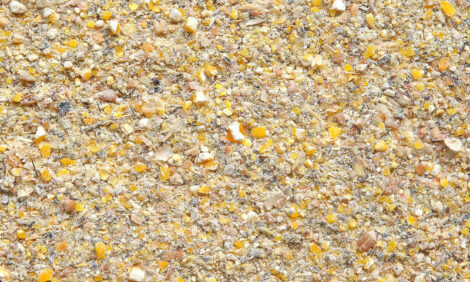



Agriculture Committee Votes on Farm Policy Reform Plans
EU - Agriculture Committee Members of the European Parliament (MEPs) have set out their position on EU farm policy reform in texts voted on Wednesday 13 and Thursday 14 February, after more than a year-long debates with farmers, cooperatives, EU agriculture ministers, MPs, experts and academics. This position will pave the way for negotiations with EU member states.The Committee has outlined its position on:
- who should get EU-funded direct payments and how they can be more fairly distributed both among and within member states,
- the measures that farmers should take to protect the environment better,
- how best to help young farmers, small farmers, and those in areas with natural constraints,
- how to strengthen farmers' price bargaining position, and
- how to improve spending controls while cutting red tape.
Note: 'Direct payments' are payments granted directly to farmers under certain support schemes, such as the current Single Payment Scheme and the Single Area Payment Scheme.
These payments provide farmers with a safety net in the form of a basic income support, decoupled from production, to stabilise their income from sales on the markets, which are subject to volatility. Direct payments also help to provide basic public goods delivered through sustainable farming.
Full details are on the European Parliament web site.
Who will get direct payments, and who will not?
The precise definition of an 'active farmer', i.e. the entity entitled to receive EU-funded direct payments, should be decided by member states and not by the EU, says the committee.
However, some entities, such as transport and real estate companies, airports, sports clubs, campsite operators, mining companies or other non-agricultural enterprises, to be defined by member states, should automatically be excluded from these definitions unless they can prove that their agricultural activities form a significant part of their overall economic activities, MEPs add.
It should be up to member states to extend the list of excluded entities (the 'negative list'), on objective and non-discriminatory grounds and after notifying the Commission, says the committee.
This greatly simplifies the Commission's original proposal, which defined 'non-farmers' as those whose income from direct payments amounts to less than five per cent of their total receipts from non-agricultural activities (excluding those who get less than €5,000 in direct payment income).
How to allocate direct payments more fairly
MEPs want the levels of payments to farmers to be re-balanced among member states slightly faster than originally proposed by the European Commission.
The committee agreed that member states with direct payments per hectare below 70 per cent of the EU average - down from the Commission proposal of 90 per cent - should see the shortfall reduced by 30 per cent.
In member states with direct payments amounting to 70 per cent - 80 per cent of the EU average, the shortfall should be reduced by 25 per cent and in those with over 80 per cent of the EU average, by 10 per cent.
This measure should ensure that farmers in no member state receive less than 65 per cent of the EU average.
By contrast, to achieve greater consistency and convergence of direct payment rates within member states, the committee slightly relaxed the rules to balance payments among farmers within any given one.
As of 2019, payments received by all farmers in any given member state are to be based on a uniform unit value, as proposed by the Commission, but could nonetheless in some cases deviate from the average by up to 20 per cent so as to avoid sudden sharp falls in support, says the committee.
However, where payments are reduced, their level in 2019 may not be more than 30 per cent below that of 2014.
Capping direct payments
MEPs endorsed Commission proposals to cap direct payments to any one farm at €300,000, reduce payments to those receiving between €250,000 and €300,000 by 70 per cent, and payments to those receiving between €200,000 and €250,000 by 40 per cent. Payments to farms receiving between €150,000 and €200,000 would be cut by 20 per cent.
Other amendments, seeking to reduce payments to bigger farms even more, or on the contrary calling for the capping to be completely rejected, failed to win the support of a majority in committee. MEPs nonetheless adapted the rules proposed by the Commission so as to exclude cooperatives and other groups of farmers who distribute payments received to their members and ensure that capped money remains in the region where it was capped and is used for rural development programmes.
How to improve environment protection
New environmental rules for farmers should be more flexible and linked to the size of the holding, says the committee. The three key measures proposed by the Commission – crop diversification, maintaining existing permanent grassland and permanent pasture and ecological focus areas – would remain, but certain exceptions should be made to reflect geographical conditions and size of holding, say MEPs.
Farmers whose holdings are certified under national or regional environmental certification schemes, and hence are already using environment-friendly practices, would be exempt from mandatory greening measures on condition that these practices have an impact at least equivalent to that which the mandatory greening measures would have.
Crop diversification
Farmers with holdings of 10 to 30 hectares of arable land should be required to plant at least two different crops (rather than requiring three crops for all farmers cultivating more than three hectares, as proposed by the Commission). None of these crops should cover more than 80 per cent (as compared to 70 per cent) of the arable land.
Farms of more than 30 ha of arable land should be required to cultivate three crops with the main one covering not more than 75 per cent and two main crops together not more than 95 per cent of the arable land.
Holdings in northern Scandinavia (north of the 62nd parallel) with more than 30 hectares of arable land should be exempt.
Permanent grassland and permanent pasture
Member states must ensure that the share of land under permanent grass and permanent pasture is maintained at national, regional or sub-regional level, to be decided by member states. Up to five per cent and in exceptional circumstances up to seven per cent could be converted, MEPs say, adding that exceptions should be possible for carbon-rich soils, wetlands, semi-natural grasslands and pastures.
Ecological focus areas
Initially, – during the first year's application of the new rules, farmers with more than 10 hectares of arable land would have to ensure that three per cent (rather than seven per cent as proposed by the Commission), excluding permanent grassland, permanent pasture and permanent crops, is reserved for so-called 'ecological focus areas' (EFAs).
EFAs could include, for example, land left fallow, terraces, landscape features including hedgerows, ditches, stone walls, in field trees, ponds, land planted with nitrogen-fixing crops, buffer strips and afforested areas. Farmers could use EFAs for production provided they do not use pesticides or fertilisers on them, MEPs stress.
EFAs could be weighted on the basis of their ecological significance. Weighting coefficients should be drawn up by member states and approved by the Commission. The EFAs should be expanded as of 1 January 2016 to cover five per cent of arable land, says the committee.
By the end of March 2017, the Commission would have to present an evaluation report and if necessary a legislative proposal to further increase the percentage to seven per cent. This proposal, if tabled, would be subject to approval by both the European Parliament and the Council.
The committee backs Commission plans to make 30 per cent of the national budget for direct payments conditional upon compliance with greening measures. Farmers who fail to comply would lose the 'greening' funds, but should not face further reductions in their remaining direct payments, MEPs decided.
More money for optional greening measures
To further support greening efforts, the committee raised the ceiling on EU co-financing of agri-environmental and climate measures by 5 per cent.
This would make less-developed and outermost regions and also the Aegean islands, eligible for up to 90 per cent co-financing (as compared to 85 per cent proposed by the Commission). For other regions, the co-funding ceiling would be set at 55 per cent (as compared to 50 per cent).
At least 25 per cent of the total spending earmarked for rural development programmes would have to be reserved for agri-environmental and climate measures and support for organic farming.
Measures for milk and sugar
Crisis mechanism for the milk sector
To ensure that the expiry of milk quotas does not lead to a serious crisis in the milk sector like that seen in 2009, MEPs suggest granting aid for at least three months to milk producers who voluntarily cut their production by at least five per cent.
They also introduced provisions on collective negotiations, contractual relations and supply management for cheese sector, as adopted by the Parliament in February 2012.
Sugar quotas
To enable beet growers to adapt to the far-reaching reform of the sugar sector in 2006, the committee rejected Commission plans to phase out sugar quotas by the end of September 2015 and suggested maintaining the system until the end of 2019-2020. Member states who relinquished all their quotas in 2006 should be allowed to get them back, say MEPs.
Furthermore, due to considerable and recurrent tensions on the European sugar market MEPs called for a mechanism that releases non-quota sugar onto the single market on the same conditions as for quota sugar. This mechanism should, at the same time, permit additional imports at zero duty to ensure sufficient raw materials are available on the EU sugar market, MEPs say.
As the quota system is to be definitively abolished in 2020, the Commission should prepare, by 1 July 2018, a report suggesting appropriate measures and table a legislative proposal, if necessary, to prepare the entire sector for the period after 2020, say MEPs.








